The EAHP EU Monitor is a regular round up of news relevant to hospital pharmacy in Europe.
You can subscribe to receive the EAHP EU Monitor by email HERE.
European health professional organisations join forces on COVID-19
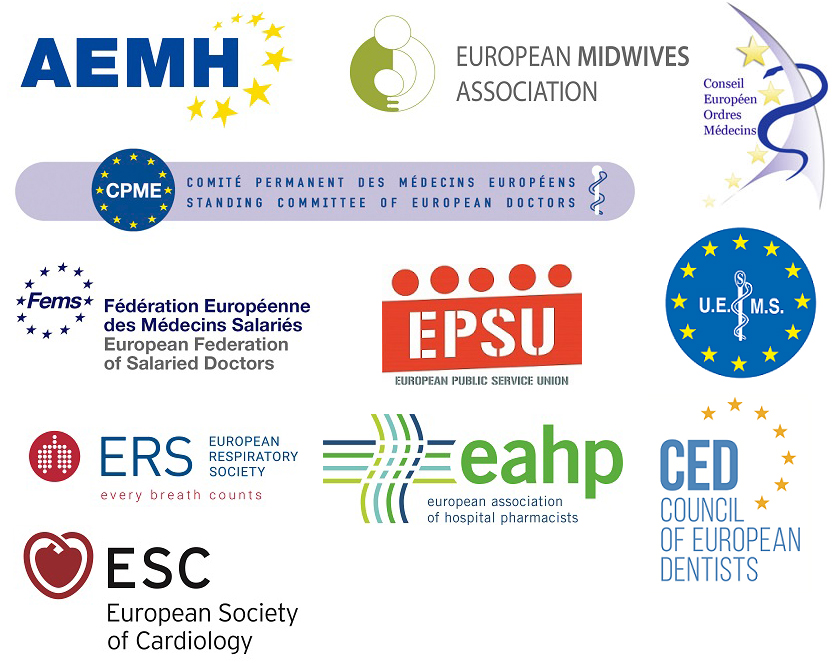
Last week the European Association of Hospital Pharmacists (EAHP) together with other European health professionals and their students’ organisations issued a Joint Statement calling on the European Commission and the governments to support and protect healthcare professionals fighting COVID-19.
As Europe has become the global centre of the COVID-19 pandemic, healthcare professionals are working hard to contain the spread of the virus, putting themselves at risk to protect the communities. Despite the unprecedented efforts to stop the pandemic, healthcare professionals are at the front line without adequate personal protective equipment (PPE). The number of infections and deaths of the healthcare staff is increasing every day. Even in times of crisis, adequate working conditions must be ensured. Staff must have breaks and time off between shifts, to be able to carry on in what could be a long-term global crisis. The working time Directive should apply. Working in such conditions takes its toll on the psychological health of staff, so appropriate support services must also be put in place.
European healthcare professional organisations call on the European Commission to open a permanent line of communication with European health professionals to share experience and best practices across Europe and to ensure that the European Commission’s support measures focus on operational priorities on the ground.
Read the Joint Statement HERE
Council of Europe Resolution to promote pharmaceutical care in Europe
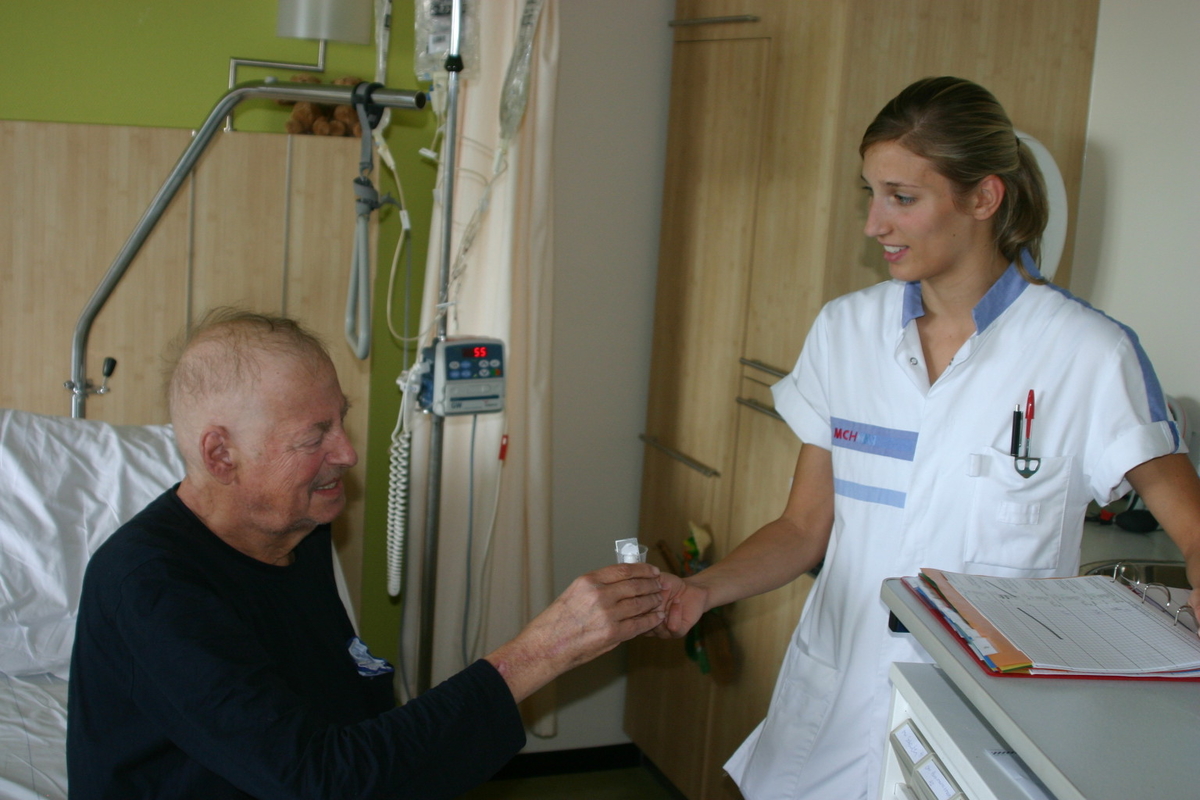
In mid-March, the Committee of Ministers of the Council of Europe adopted a new Council of Europe resolution on the implementation of pharmaceutical care for the benefit of patients and health services. The resolution aims at improving medication use and the quality of patient care across Europe.
To address inadequate use of medicines which can lead to suboptimal patient outcomes pharmacists are encouraged to use their expertise and that of the pharmacy team to contribute to the appropriate use of medicines and health promotion, both locally and nationally. The guidance and recommendations of the resolution seek to provide health authorities across Europe with information on how the promotion and implementation of pharmaceutical care can be supported. The resolution can also be used by healthcare professionals and associations as a legal basis for the implementation of pharmaceutical care and related working methods in their daily activities.
Access the Resolution HERE
The potential of prospective risk-assessments for combatting medicines shortages
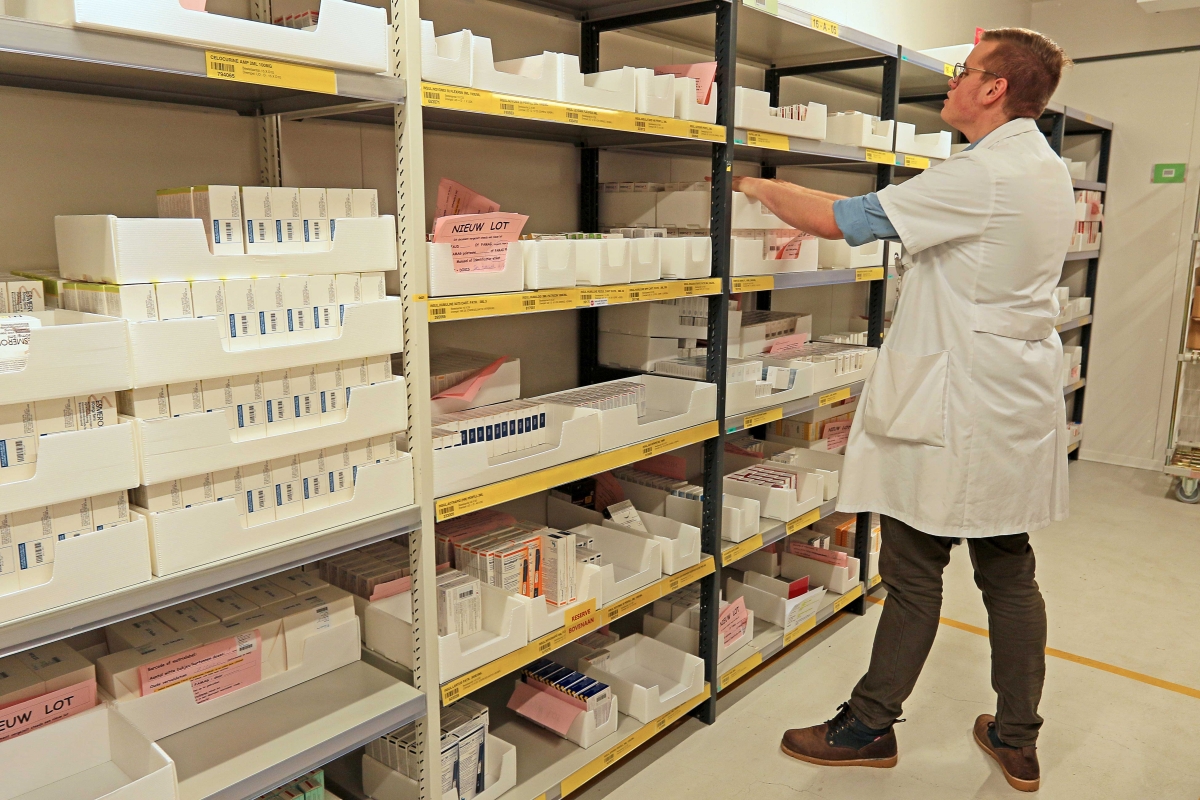 A new article published in Frontiers in Pharmacology provides insight into the potential of prospective risk-assessments to address medicines shortages in Europe. The researchers reviewed existing strategies for minimising patient-health risks through applied risk assessment and looked at experiences related to the practical application of such assessments. In light of the findings, key stakeholders involved in managing medicine shortages are encouraged to consider combining their efforts through conducting proactive and prospective risk assessment in a harmonized manner to support patient harm reduction.
A new article published in Frontiers in Pharmacology provides insight into the potential of prospective risk-assessments to address medicines shortages in Europe. The researchers reviewed existing strategies for minimising patient-health risks through applied risk assessment and looked at experiences related to the practical application of such assessments. In light of the findings, key stakeholders involved in managing medicine shortages are encouraged to consider combining their efforts through conducting proactive and prospective risk assessment in a harmonized manner to support patient harm reduction.
The authors of the publication involved members of the European Cooperation in Science and Technology (COST) Action 15105 and hospital pharmacists of EAHP in the collection of data via semi-structured questionnaire focusing on medicine shortages. The analysis revealed that 62% of participants were aware of the use of risk assessment procedures as a coping strategy for medicine shortages. Failure mode and effect analysis (FMEA), root cause analysis (RCA) and the healthcare FMEA (HFMEA) were mentioned as tools used for carrying out risk assessments.
The analysed data demonstrated that a prospective approach in risk assessment does not only allow the risks to be handled systematically in a timely manner but also provides and influences a safety culture within healthcare settings. The uptake of risk assessments in Europe remains low, due to the lack of legal instruments and insufficient data confirming the necessity and usefulness of risk assessment in mitigating medicine shortages.
Read the article HERE
Updates from the EMA

In the second half of March, the European Medicines Agency (EMA) shared several communications. Information released by EMA was linked to the breast cancer medicine Tyverb, provided an update on the restrictions in use of cyproterone due to meningioma risk and reported on the benefits of medicines containing combination of methocarbamol and paracetamol which continue to outweigh risks. Concerning COVID-19, EMA warned the public about falsified medicines from unregistered websites, shared advice on the use of medicines for hypertension, heart or kidney disease during the pandemic and reported on a workshop with global regulators which discussed the development of COVID-19 vaccines. Also EMA provided advice on the use of non-steroidal anti-inflammatories for COVID-19.
No change to product information for breast cancer medicine Tyverb following re-assessment of data
The product information for Tyverb, a breast cancer medicine, will continue to state that no data are available on the effectiveness of Tyverb used together with an aromatase inhibitor compared with trastuzumab used with an aromatase inhibitor in patients previously treated with trastuzumab. In July 2018, results of a study involving women with ‘HR+/HER2+’ breast cancer and whose disease had worsened despite previous treatment with trastuzumab were added to Tyverb’s product information. The results had indicated a benefit of Tyverb over trastuzumab when each medicine was used with an aromatase inhibitor. However, in April 2019, errors were detected in the data and they were removed from the product information.
During a procedure to re-assess the data, the contract research organisation where the data were analysed was inspected. The inspection found deficiencies in the systems and procedures for managing data and concluded that data handling did not comply fully with good clinical practice (GCP). In addition, the re-analysed data do not allow a conclusion on whether Tyverb is more effective than trastuzumab when either is combined with an aromatase inhibitor. As a result, the study results will not be re-introduced into the product information for Tyverb. There are no consequences for the current authorised uses of the medicine in the treatment of breast cancer.
More information is available HERE
EMA advises continued use of medicines for hypertension, heart or kidney disease during COVID-19 pandemic
EMA is aware of recent media reports and publications which question whether some medicines, for instance angiotensin converting enzyme (ACE) inhibitors and angiotensin receptor blockers (ARBs, or sartan medicines), could worsen coronavirus disease (COVID-19). ACE inhibitors and ARBs are most commonly used for treating patients with high blood pressure, heart failure or kidney disease.
It is important that patients do not interrupt their treatment with ACE inhibitors or ARBs and there is no need to switch to other medicines. There is currently no evidence from clinical or epidemiological studies that establishes a link between ACE inhibitors or ARBs and the worsening of COVID-19. Experts in the treatment of heart and blood pressure disorders, including the European Society of Cardiology, have already issued statements along those lines. To gather more evidence, EMA is proactively reaching out to researchers working to generate further evidence in epidemiological studies. As the public health crisis rapidly extends across the globe, scientific research is ongoing to understand how the severe acute respiratory syndrome coronavirus 2 (SARS-CoV-2) reproduces in the body, interacts with the immune system and causes disease, and whether ongoing treatment with medicines such as ACE-inhibitors and ARBs could impact the prognosis of COVID-19.
The speculation that ACE-inhibitors or ARBs treatment can make infections worse in the context of COVID-19 is not supported by clinical evidence. These medicines work by affecting the renin-angiotensin-aldosterone system (RAAS). Because the virus uses a target called angiotensin converting enzyme 2 (ACE2), which is part of this system, to enter human cells, and the medicines can increase ACE2, one of the suggestions among others is that they could also increase virus activity. However, the interactions of the virus with the RAAS in the body are complex and not completely understood.
EMA is monitoring the situation closely and is collaborating with stakeholders to coordinate epidemiological studies on the effects of ACE inhibitors and ARBs in people with COVID-19.
EMA is helping to coordinate urgent ongoing research and is fully committed to keep the public up to date with any development in this field. EMA is also aware of reports questioning whether other medicines such as corticosteroids and non-steroidal anti-inflammatories (NSAIDs) could worsen COVID-19, and has recently issued a communication on NSAIDs medicines. It is important that patients who have any questions or are uncertain about their medicines speak to their doctor or pharmacist and do not stop their regular treatment without speaking to their healthcare professional first. Medicines should be prescribed and used in line with clinical judgement, taking due note of any warnings and other information provided in the summary of product characteristics (SmPC) and the package leaflet, as well as guidance issued by the WHO and relevant national and international bodies. Within the EU medicines regulatory network, evidence on the safe use of medicines is reviewed as it emerges. Any new advice that arises is disseminated appropriately through EMA and national competent authorities. EMA will provide further information as appropriate.
More information is available HERE
For the latest updates, access EMA’s dedicated webpage on COVID-19
Restrictions in use of cyproterone due to meningioma risk
On 13 February 2020, EMA’s Pharmacovigilance Risk Assessment Committee (PRAC) recommended that medicines with daily doses of 10 mg or more of cyproterone should only be used for androgen-dependent conditions such as hirsutism (excessive hair growth), alopecia (hair loss), acne and seborrhoea (excessively oily skin) once other treatment options, including treatment with lower doses, have failed. Once higher doses have started working, the dose should be gradually reduced to the lowest effective dose.
The medicines should only be used for reduction of sex drive in sexual deviations in men when other treatment options are not suitable. There is no change in use of the medicines in men for prostate cancer. The recommendations follow a review of the risk of the rare tumour meningioma with cyproterone. Overall, this side effect is rare: it may affect between 1 and 10 in 10,000 people, depending on the dose and duration of treatment. The risk increases with increasing cumulative doses (the total amount of medicine a patient has taken over time).
Available data do not indicate a risk for low-dose cyproterone medicines containing 1 or 2 milligrams cyproterone in combination with ethinylestradiol or estradiol valerate and used for acne, hirsutism, contraception, or hormone replacement therapy. However, as a precaution, they should not be used in people who have or have had a meningioma. This restriction is already in place for the higher dose medicines.
More information is available HERE
Benefits of medicines containing combination of methocarbamol and paracetamol continue to outweigh risks
EMA has concluded that the benefits of medicines containing methocarbamol and paracetamol continue to outweigh their risks in the short-term treatment of painful muscle spasms. EMA’s review was started because recent publications had raised questions about the effectiveness of the combination of these substances at treating conditions such as low back pain in the doses at which they are present in these medicines.
EMA’s Committee for Medicinal Products for Human Use (CHMP) considered all available data on medicines containing methocarbamol 380 mg and paracetamol 300 mg and concluded that the available evidence was not enough to question their effectiveness in the treatment of painful muscle spasms. In addition, the Committee considered that the safety profile of each substance contained in these medicines is well known, and no new significant safety concerns were identified for the fixed dose combination. However, a few cases of dry mouth and diarrhoea have been reported and may be caused by methocarbamol. The Committee therefore recommended including these as side effects in the product information.
More information is available HERE
No change is needed in use of direct oral anticoagulants following EMA-funded study
No change to the conditions of use of the direct oral anticoagulants Eliquis (apixaban), Pradaxa (dabigatran etexilate) and Xarelto (rivaroxaban) is needed following a review of the results of a European study of real-world data for these medicines. The study, commissioned by EMA and using real-world data from Denmark, France, Germany, Spain, the Netherlands and the United Kingdom, assessed the risk of serious bleeding with these 3 medicines when used to prevent blood clotting in patients with non-valvular atrial fibrillation (irregular rapid contractions of the heart) and compared this with other oral anticoagulants called vitamin K antagonists.
The results were reviewed by EMA’s CHMP, in consultation with PRAC, and were compared with data from other similar studies and in the published literature. EMA’s review concluded that the pattern of serious bleeding seen in patients taking Eliquis, Pradaxa and Xarelto was similar to that seen in the clinical trials on which the authorisation of the medicines were based. The data were not sufficient to allow robust conclusions to be drawn on comparisons between the 3 medicines.
The study also looked at whether the use of the medicines in clinical practice was in line with the authorised uses and took into account existing contraindications, warnings and advice on interactions with other medicines. EMA concluded that no changes to the product information were warranted, as the data did not provide robust evidence of a high level of non-adherence to the authorised product information. The study results provided further data on the known increased risk of bleeding in older patients (>75 years). The companies marketing these direct oral anticoagulant medicines will be asked to further explore the issue and to investigate whether changes to the recommended doses could be beneficial for these patients.
More information is available HERE
Global regulators map out data requirements for phase 1 COVID-19 vaccine trials
Global regulators have published a report presenting the outcomes of a workshop on COVID-19 vaccine development that was convened under the umbrella of the International Coalition of Medicines Regulatory Authorities (ICMRA). The meeting report provides an overview of regulatory considerations related to COVID-19 vaccine development and data required for regulatory decision-making on two key points:
- Pre-clinical data required to support proceeding to first-in-human clinical trials with investigational medicinal products; and
- The need to address the known theoretical risk that vaccines against COVID-19 enhance the disease prior to starting first-in-human clinical trials.
All participants in the meeting acknowledged the urgency of conducting first-in-human clinical trials with COVID-19 vaccine candidates. The conclusions set out how regulatory authorities around the globe intend to strike the balance between rapid development of vaccines and the need to generate enough robust data to enable decision-making. The meeting also aimed to encourage exchange of information about the global efforts towards developing new vaccines against COVID-19 through an open dialogue between medicines regulatory authorities around the globe.
More information is available HERE
COVID-19: Beware of falsified medicines from unregistered websites
EMA is urging the general public not to buy medicines from unauthorised websites and other vendors aiming to exploit fears and concerns during the ongoing pandemic of coronavirus disease (COVID-19). Vendors may claim that their products can treat or prevent COVID-19 or may appear to provide easy access to legitimate medicines that are otherwise not readily available. Such products are likely to be falsified medicines.
Falsified medicines are fake medicines that vendors pass off as real or authorised. They may contain the wrong or no active ingredient or the right ingredient in the wrong amount. They may also contain very harmful substances that should not be in medicines. Taking such products can lead to severe health problems or a worsening of your condition. To protect yourself from fraudulent vendors, only buy medicines from a local pharmacy or retailer or from an online pharmacy that is registered with the national competent authorities. You can find the lists of registered online pharmacies in EU countries via EMA’s website or directly from websites of the national competent authorities.
All registered online pharmacies have a common logo which you can use to confirm that the site is registered. The logo consists of a rectangle with horizontal stripes and a white cross placed in the left half of the rectangle adjacent to the midline. Below this is the flag of the EU country where the online pharmacy is registered. Before buying a medicine from a site, check that the site has the logo and then click on it. You will then be taken to the website of your national authority and shown a list of all legally operating online pharmacies. Check that the online pharmacy you have visited is listed there before continuing with your purchase. If it is not listed, do not buy any medicine from that site.
More information is available HERE
EMA gives advice on the use of non-steroidal anti-inflammatories for COVID-19
EMA is aware of reports, especially on social media, which raise questions about whether non-steroidal anti-inflammatory medicines (NSAIDs) such as ibuprofen could worsen coronavirus disease (COVID-19). There is currently no scientific evidence establishing a link between ibuprofen and worsening of COVID‑19. EMA is monitoring the situation closely and will review any new information that becomes available on this issue in the context of the pandemic.
In May 2019, the PRAC started a review of the non-steroidal anti-inflammatory medicines ibuprofen and ketoprofen following a survey by the French National Agency for Medicines and Health Products Safety (ANSM) which suggested that infection due to chickenpox (varicella) and some bacterial infections could be made worse by these medicines. The product information of many NSAIDs already contains warnings that their anti-inflammatory effects may hide the symptoms of a worsening infection. The PRAC is reviewing all available data to see if any additional measure is required.
When starting treatment for fever or pain in COVID-19, patients and healthcare professionals should consider all available treatment options including paracetamol and NSAIDs. Each medicine has its own benefits and risks which are reflected in its product information and which should be considered along with EU national treatment guidelines, most of which recommend paracetamol as a first treatment option for fever or pain. In line with EU national treatment guidelines, patients and healthcare professionals can continue using NSAIDs (like ibuprofen) as per the approved product information. Current advice includes that these medicines are used at the lowest effective dose for the shortest possible period.
Patients who have any questions should speak to their doctor or pharmacist. There is currently no reason for patients taking ibuprofen to interrupt their treatment, based on the above. This is particularly important for patients taking ibuprofen or other NSAID medicines for chronic diseases.
Further to the ongoing PRAC safety review on ibuprofen and ketoprofen, EMA highlights the need for epidemiological studies to be conducted in a timely manner to provide adequate evidence on any effect of NSAIDs on disease prognosis for COVID-19. The Agency is reaching out to its stakeholders and is ready to actively support such studies, which could be useful in guiding any future treatment recommendations. EMA will provide further information as necessary and once the PRAC review is concluded.
More information is available HERE
EJHP: The healthcare and pharmaceutical vulnerability emerging from the new Coronavirus outbreak
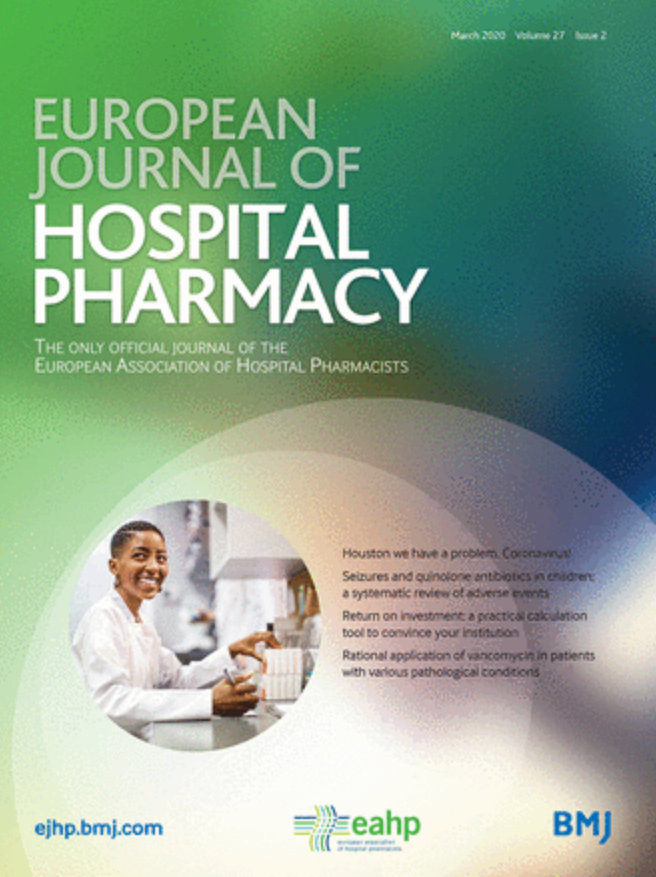
The online first edition of the European Journal of Hospital Pharmacists (EJHP) has picked up on the coronavirus disease. The authors of a newly published editorial are providing first-hand insight into the situation in Italy and also touch on the possibility of medicines shortages occurring due to the pandemic.
Read the editorial HERE
 [COVID-19 Updates]
[COVID-19 Updates]
EAHP’s COVID-19 Resource Centre
To assist its member associations and individual hospital pharmacists in this critical time with the provision of the best possible care for patients, EAHP has decided to gather and make available information on COVID-19 relevant for the hospital pharmacy profession.
Access the Resource Centre HERE
Products and extemporaneous preparation of paediatric formulations that may be useful in the treatment of Covid-19
The European Paediatric Formulary Working Party of the European Directorate for the Quality of Medicines and Healthcare (EDQM) has collated information on licensed products as well as extemporaneous preparations which may be suitable for the treatment of paediatric patients with COVID-19.
Read more HERE
Commission launches “COVID-19 Clinical Management Support System”
To support clinicians in hospitals that are currently facing the coronavirus emergency, the European Commission launched the “COVID-19 Clinical Management Support System”. Similar to the European Reference Networks this support system seeks to create rapid connections among the hospitals indicated by the Member States as reference centres for COVID-19.
Read more HERE
Have you completed your SAT?
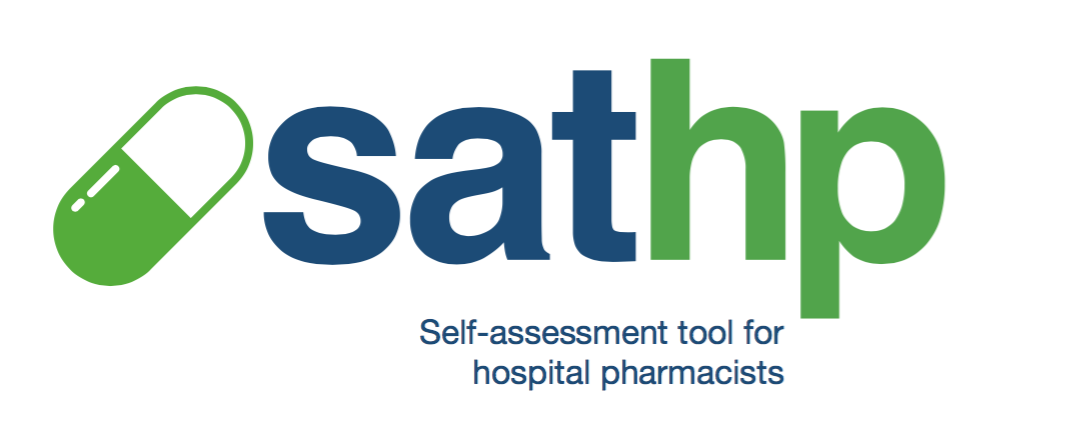
To help hospital pharmacists with the implementation of the European Statements of Hospital Pharmacy the self-assessment tool (SAT) has been developed. By completing the questions posed by the tool, hospitals across Europe can measure their level of Statement implementation and compare themselves with others.
Learn more about SAT HERE
___________________________________________________________________________________________________________________
Consultations

EMA – Points to consider on implications of Coronavirus disease (COVID-19) on methodological aspects of ongoing clinical trials
The European Medicines Agency (EMA) is collecting input on guidance looking at the points to consider on implications of Coronavirus disease (COVID-19) on methodological aspects of ongoing clinical trials. Due to the urgency, this guidance is issued with a 4-week public consultation. It should be noted that due to the rapidly evolving situation further updates to this guidance are possible and likely.
Deadline – 24th April 2020
Access consultation HERE
Commission – Europe’s Beating Cancer Plan
The public consultation for Europe’s Beating Cancer Plan is seeking to collect feedback on the pillars of the plan which include cancer prevention, diagnosis, treatment, follow-up care and research from individual citizens, patients, and carers replying in their personal capacity as well as health professionals and organisations.
Deadline – 7th May 2020
Access consultation HERE
Commission – White Paper on Artificial Intelligence
The European Commission is seeking input on its White Paper on Artificial Intelligence (AI) via a public consultation. Stakeholders are encouraged to review the measures and policy options put forward in the AI White Paper.
Deadline – 31st May 2020
Access consultation HERE


























 A new article published in Frontiers in Pharmacology provides insight into the potential of prospective risk-assessments to address medicines shortages in Europe. The researchers reviewed existing strategies for minimising patient-health risks through applied risk assessment and looked at experiences related to the practical application of such assessments. In light of the findings, key stakeholders involved in managing medicine shortages are encouraged to consider combining their efforts through conducting proactive and prospective risk assessment in a harmonized manner to support patient harm reduction.
A new article published in Frontiers in Pharmacology provides insight into the potential of prospective risk-assessments to address medicines shortages in Europe. The researchers reviewed existing strategies for minimising patient-health risks through applied risk assessment and looked at experiences related to the practical application of such assessments. In light of the findings, key stakeholders involved in managing medicine shortages are encouraged to consider combining their efforts through conducting proactive and prospective risk assessment in a harmonized manner to support patient harm reduction.

 [COVID-19 Updates]
[COVID-19 Updates]
